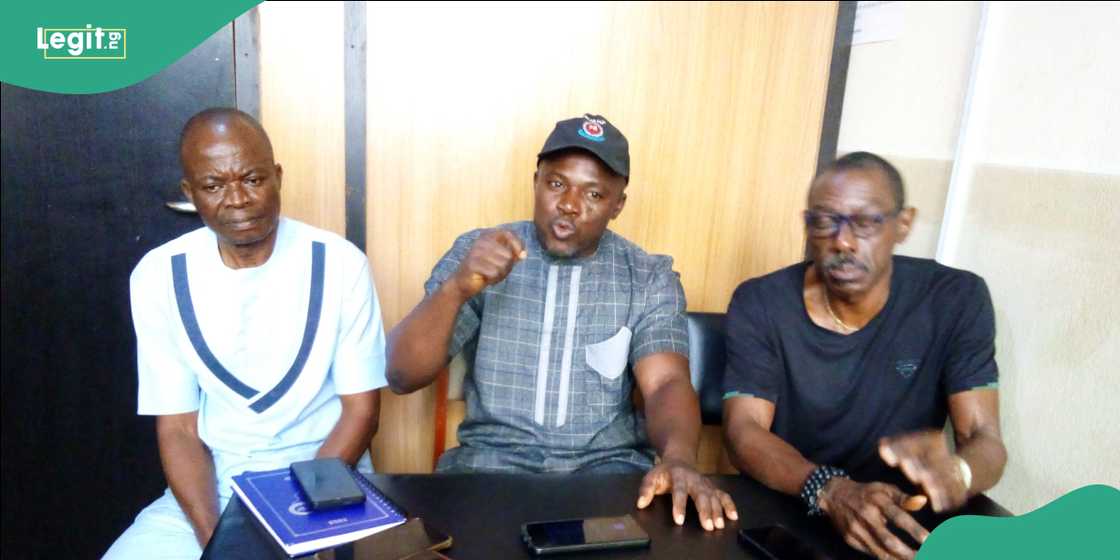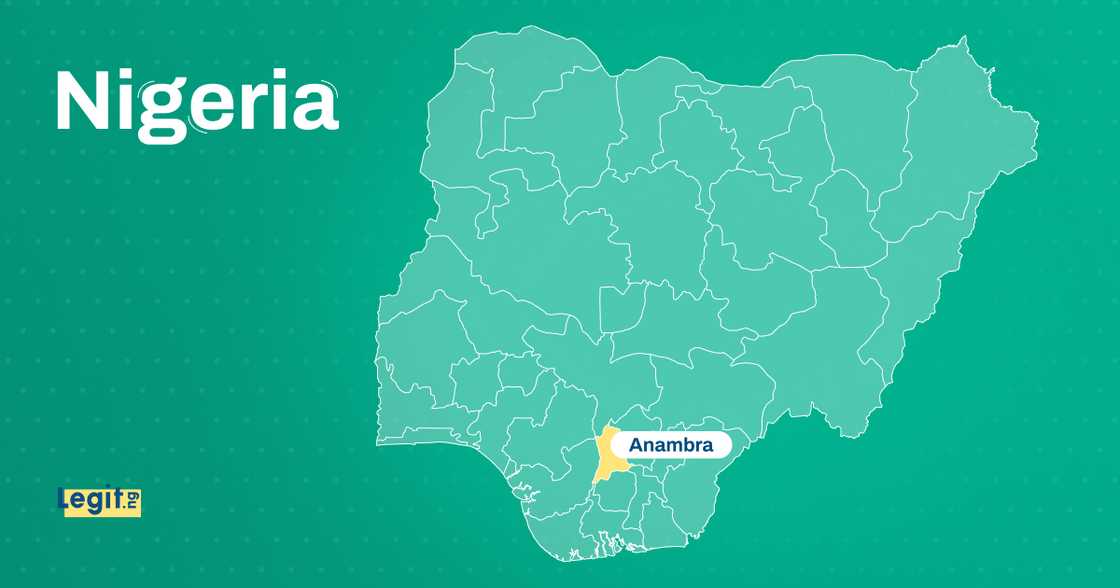The Anambra State chapter of the Nigerian Union of Allied Health Professionals (NUAHP) has announced its decision to commence an indefinite strike starting Thursday, September 4, 2025. This decision, according to the union, follows years of alleged neglect and unresolved grievances with the state government, even as more than 15,000 patients—including vulnerable groups such as children, pregnant women, and critically ill individuals—depend on health services across government institutions in the state.
Comrade Charles Nwoye, the union’s chairman, revealed these plans in a discussion with journalists in Awka, the Anambra State capital. The NUAHP comprises a range of essential healthcare professionals—pharmacists, physiotherapists, medical laboratory scientists, optometrists, radiographers, health information managers, dietitians, and other workers who play critical roles in the delivery of public healthcare in the state.
Nwoye emphasized that despite the pivotal role allied health professionals play in sustaining the state’s health system, their welfare has been overlooked. He pointed out that the state government has not implemented the salary structure approved for these professionals since 2010. This structure, popularly known as the Consolidated Health Salary Structure (CONHESS), has already been adopted by other states, including the five South-Eastern states, yet Anambra has lagged behind.
He said:
“This current struggle started in 2024, when Anambra State heath workers requested that we should be paid in line with what the federal government approved for health workers in the country. The salary structure we’re talking about was approved since 2010, and majority of the states have adopted and implemented it. All the states in the southeast have adopted it except Anambra.
“In December, 2024, we gave strike ultimatum that expired January 6, 2025. Before the end of the ultimatum, we had informal meeting with the Secretary to the State Government, Prof. Solo Chukwudobelu, who gave us some hope, and encouraged us not to proceed on strike. Eight months down the line, nothing happened – nothing changed, and our members are not happy.
“At the midnight of September 4, 2025, our 15-day ultimatum will expire. On Thursday, September 4, we’re going to withdraw our services, and there will be no going back.”
Group complains of unfair treatment
At a press briefing, Nwoye was joined by the union’s secretary, Comrade Afam Udozor, as well as Dr. Ikedi Onah, the deputy national secretary of the National Association of Nurses and Midwives. These leaders reaffirmed the dedication of allied health professionals to improving Anambra’s health sector, but expressed frustration that their efforts have not translated into equitable treatment or recognition by authorities.

Source: Original
Union representatives lamented that while medical doctors in the state benefit from full salary structure implementation, allied health professionals continually face discrimination in pay and working conditions. These disparities have reportedly prompted many qualified professionals to leave Anambra for better opportunities elsewhere—a situation that threatens the state’s ability to sustain a robust healthcare workforce.
According to Nwoye:
“We work as a team with doctors and nurses in Anambra hospitals, but regrettably, salary structure for both medical doctors and nurses in Anambra have been worked out and implemented fully; but ours have neither been worked out nor implemented. So, there is a selective treatment in this regard.
“As field workers in the health sector, our duty is to ensure smooth running of the health system. We’re also aware that Governor Charles Soludo is keen to see the health sector work. We do not take our duties for granted because of the oat we took. We acknowledge that without us, a lot of things will go wrong in the hospitals. But when we take care of patients, but those who suppose to take care of us are not doing so, we can hardly give your best.”
He voiced concern that the outflow of skilled professionals is a direct consequence of inadequate pay and poor motivation. While the government has indicated intentions to recruit more health workers, Nwoye stressed that unless salaries and conditions improve, the same challenges will persist, repeating the cycle of attrition and shortages.
He added that as the state plans to engage more health workers in the near future, without adequate treatment and renumeration, the story will remain the same.
“We’re not happy that we’re proceeding on strike, because, with thousands of patients in hospitals across the state, no one knows whose life will be lost. It may be any of our children, brothers or sisters, or close relatives,” he concluded.
Anambra government slammed for perceived lack of seriousness
Dr. Ikedi Onah, deputy national secretary of the National Association of Nurses and Midwives, criticized what he described as the Anambra State government’s lack of seriousness in addressing the plight of health workers. According to Onah, multiple formal letters have been sent to the state governor regarding these issues, but the union claims they have received no substantive response.
He recounted an encounter during a wage negotiation meeting with the Secretary to the State Government (SSG), in which health workers were allegedly advised to seek employment in other states if dissatisfied with current pay levels. Such statements, Onah argued, highlight the administration’s disconnected approach to critical workforce issues affecting healthcare delivery across Anambra.
Furthering the point, union secretary Comrade Afam Udozor noted that although Governor Soludo’s administration has spent significant resources—amounting to billions of naira—on new infrastructure projects, including the ultra-modern trauma centre at Chukwuemeka Odumegwu Ojukwu University Teaching Hospital in Amaku, Awka, little attention has been given to improving the welfare of personnel expected to staff these facilities. This, the union alleges, undermines the state’s investments in physical infrastructure, as top-notch facilities require well-compensated, motivated professionals to deliver quality care.
Government responds to claims of negligence and irresponsibility
In response, Dr. Afam Obidike, Anambra State Commissioner for Health, denied allegations that the government is indifferent to the concerns of health workers. Speaking with media on the matter, Obidike highlighted ongoing efforts to address the union’s core demands.
He explained that of the three major requests from the health professionals, the government has reportedly fulfilled two, and work is ongoing to meet the remaining demand relating to salary adjustments. “As health commissioner, I am committed to ensuring these demands are met, especially regarding fair wages,” Obidike assured, pointing to the complex financial implications of increasing salaries across the sector.
The commissioner also disclosed that the state plans to recruit an additional 150 health workers to bolster its public health workforce. However, Obidike appealed for patience from the striking workers, noting that budgetary constraints necessitate a phased approach to implementing all changes. He called on the union to carefully consider the wider impact of industrial action on patient lives and healthcare delivery, stressing the importance of dialogue over confrontation.
Addressing the threat of a strike, Obidike vowed to seek a resolution that averts disruptions to the health system, cautioning against actions that could jeopardize patient care. “The health sector cannot afford any shutdowns. The labour market is open, and those genuinely dissatisfied can leave individually, but risking the lives of thousands should be avoided at all costs,” he stated.
Security challenges: Armed vigilantes invade corps members’ lodge
Amid ongoing industrial disputes in the state’s health sector, a separate incident has raised new concerns about safety and security. A widely shared video on social media reportedly captured armed vigilante operatives from the Operation Udo Ga-Achi (Agunechemba Vigilante Group) storming a corps members’ lodge in Anambra. The video, which quickly gained traction nationwide, appears to show the operatives assaulting a female National Youth Service Corps (NYSC) member and her colleagues, despite their attempts to prove their identities.
The event, which drew swift condemnation across Nigeria and in the wider West African region, has renewed conversations about the safety of youth corps members and the effectiveness of community policing in Nigeria’s southeastern states. For many Nigerians and regional observers, the incident underscores persistent gaps in accountability and oversight of vigilante groups operating alongside formal security agencies.
As more details emerge, civil society groups and professional associations have called for transparent investigations and systemic reforms to enhance both health sector stability and the broader security environment in Anambra State. The recent wave of agitation—from healthcare worker strikes to reports of vigilante misconduct—reflects wider national challenges regarding fair labour practices, public sector funding, and community security in Nigeria.
While the government insists that progress is being made, many in the community believe there is an urgent need for proactive dialogue, strategic investment in people as well as infrastructure, and clear policies to protect both workers and ordinary citizens.
In a broader African context, similar issues of labour relations, health worker migration, and security sector reforms have surfaced in countries like Ghana, Kenya, and Côte d’Ivoire, pointing to a shared need for holistic approaches to public service delivery and safety across the continent.
What is your take on the ongoing industrial dispute in Anambra’s health sector and incidents involving vigilante security? How should state governments balance funding between infrastructure and personnel welfare? Drop your thoughts in the comments, and don’t forget to follow us for updates on this and other important stories.









